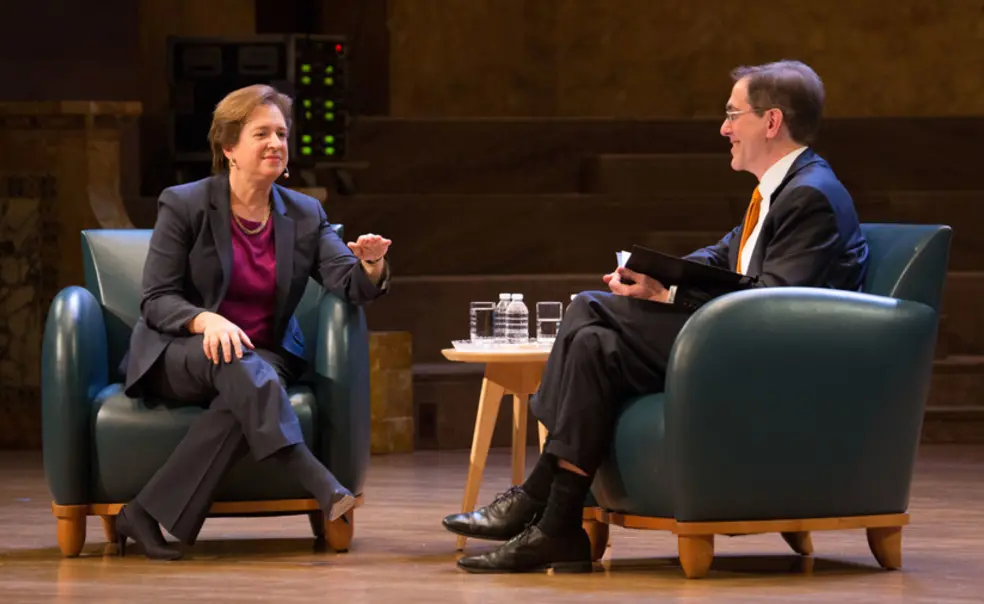Elena Kagan ’81 and David Card *83 to Receive Top Honors
The university’s highest alumni awards will be presented to U.S. Supreme Court Justice Elena Kagan ’81 and economist David Card *83 on Alumni Day, Feb. 22.
Kagan, who has served as an associate justice of the Supreme Court for 14 years, will receive the Woodrow Wilson Award, presented annually to an undergraduate alum whose career embodies Wilson’s words “Princeton in the Nation’s Service.” Prior to joining the Supreme Court, Kagan was the first female dean of Harvard Law School, served as associate White House counsel and deputy assistant for domestic policy during the Clinton administration, and was a professor of law at the University of Chicago and Harvard.
“Elena Kagan is a blazing legal intellect who has dedicated herself to the rule of law at every stage of her formidable career,” President Christopher Eisgruber ’83 said in a press release. He added, “She has played a distinctive leadership role in American jurisprudence.”
Card, who taught at the University from 1983 to ’96 and was jointly awarded the 2021 Nobel Prize in economics with Joshua Angrist *89 and Guido Imbens, will receive the James Madison Medal. The honor is awarded each year to a graduate alum who has had a distinguished career, advanced the cause of graduate education, or achieved an outstanding record of public service. Card’s research used natural experiments to study a variety of topics from wage determination to inequality to understand how the economy operates — ultimately challenging conventional wisdom. He was awarded the Nobel for providing “new insights about the labor market,” according to the Nobel Committee announcement.
“Along with changing the way economists think about the labor market, especially regarding the minimum wage, his work contributed to changing the way empirical research is done,” Eisgruber said in the release.












2 Responses
Rory Remer ’68
1 Year AgoWoodrow Wilson Award
Out of curiosity, a question for the Princeton community. Who would feel honored by receiving the Woodrow Wilson Award? Why?
Jeffrey Miller ’66
1 Year AgoPaths After Princeton
Princeton ’66, last in physics, I had to promise my adviser, Tom Carver, not to apply for physics grad school. But he was relieved that I only wanted to go to medical school, Temple University ’70 M.D.